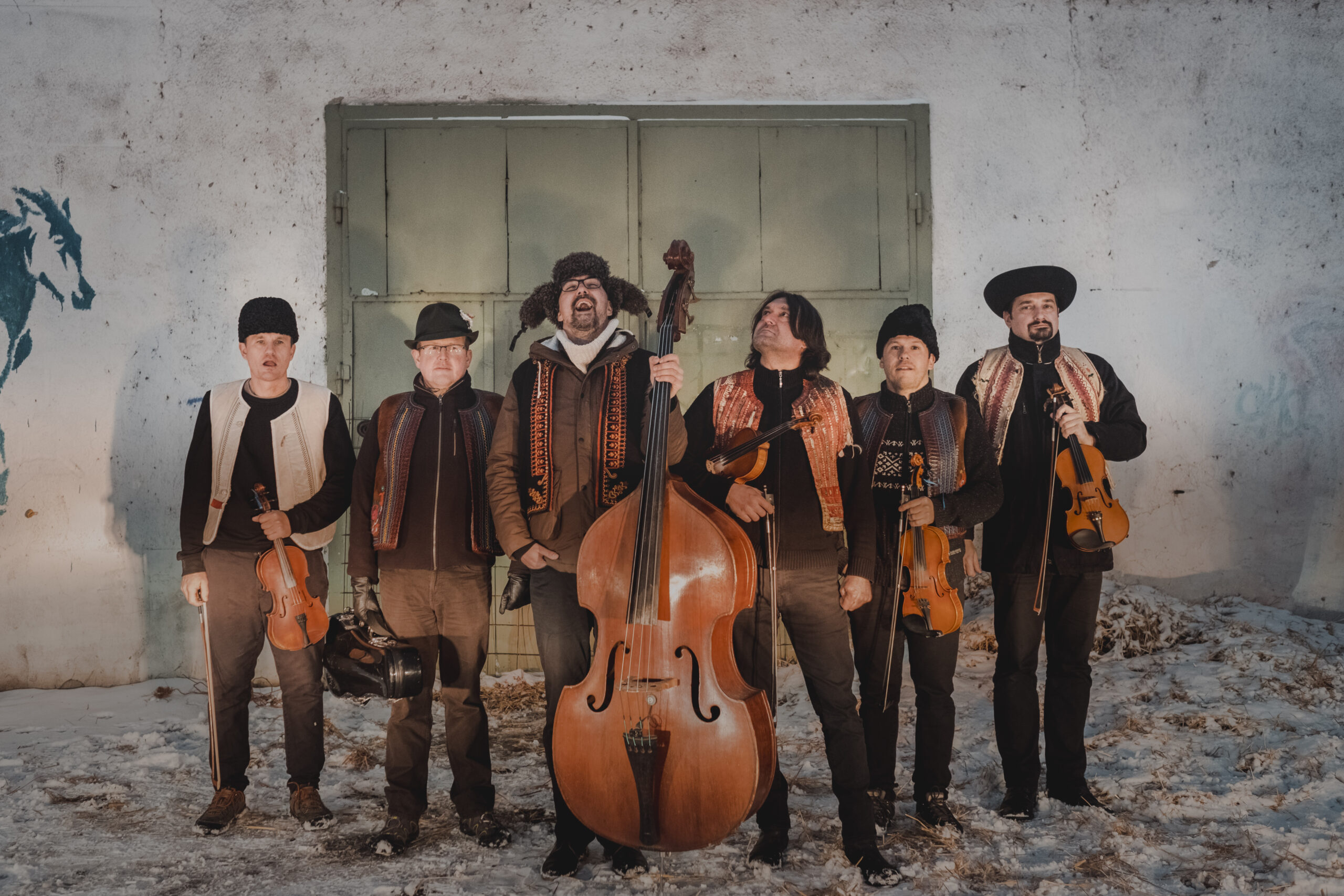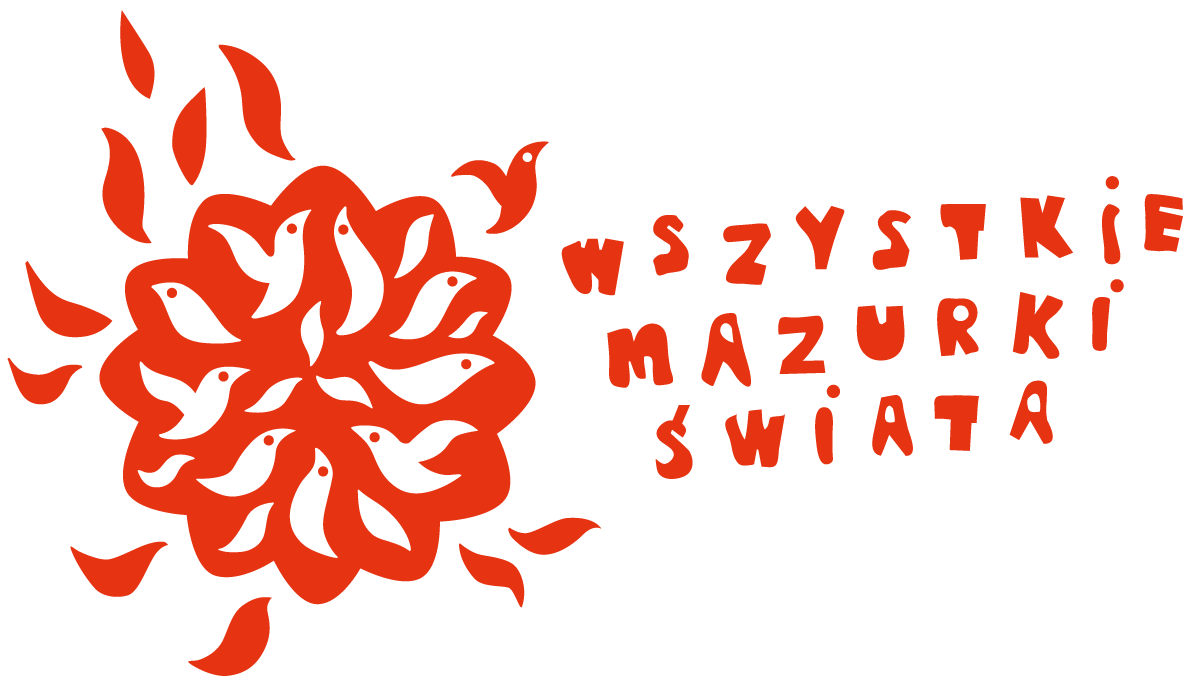
CONCERT On the Dancehouse Trail
• Kapela Muzička and dancers: Alfred Lincke, Antónia Rokošná (Slovakia)
• Sisters Klervie and Awena Guélou; Tangi Pensec and Julien Tymen (France, Brittany)
• Kapela Erdőfű and dancers: Zalán Pásztor and Melinda Balogh (Hungary)
• Maria Siwiec and Janusz Prusinowski Kompania (Poland) and dancers: Grzegorz Ajdacki and Paulina Szagżdowicz, Przemysław Jarosz and Hanna Kidron, Arkadiusz Szałata and Katarzyna Chodoń, Dominik Wóltański and Aleksandra Włodarczyk, Piotr Zgorzelski, Augustyna and Józefina Zgorzelska
Concert curator: Janusz Prusinowski
Everyone who attended a traditional Night of Dance – be it in Poland, Hungary, Slovakia, or in Brittany, France – knows the feeling you leave with at dawn, after many hours of dancing to the intense live music. It is a state that is hard to describe, but probably one of the most beautiful sensations a person could feel. A happiness that spreads throughout the world around you.
It is said that under certain circumstances, the human mind “opens up” and achieves the state of “shared awareness.” One of these circumstances is a communal, synchronized movement to music – dance. The search for this state is where the roots of the phenomenon of traditional dances lies. Dance is the glue of the community, and the dance houses are the way leading towards it.
The dance house movement (from the Hungarian Tanchaz) was born in Budapest in the 1970s. It turned out that the city, too, can enjoy village music and that traditional dance can once again become the youth’s language of personal expression and a way of building relationships in the modern environment. Music and dance lovers also traveled from cities to the villages to learn to play, sing, and dance directly from the village musicians and dancers, and to create and share archives of traditional music. The initial fascination turned into an important part of the culture, the way to pass on and practice traditional music and dance, and an effective method to preserve folk music. Currently, there are about 80 dance houses in Budapest alone.
At the concert, the tradition of the Hungarian Tanchaz will be represented by the wonderful Erdőfű band, and the dancers Melinda Balogh and Zalán Pásztor.
In Brittany, the movement reviving the traditional dance began even earlier, in the 1950s, thanks to the competitions organized for instrumental and singing duos. It was connected to the general revival of the Breton language and the local identity. Organizing festoù-noz (Breton dance parties which were put on the UNESCO list of world cultural heritage in 2012) began to define Brittany’s uniqueness. Bands with traditional and modern instruments became playing in local bars, and towns built special dance halls with wooden floors to accommodate the dancers. The richness of rhythms, melodies, and local dance forms – from archaic to ballroom, in circles, lines, rows, and pairs – became an inexhaustible source of inspiration and a widely known skill. Brittany became a true basin of traditional music and dance in France, with over a thousand festoù-noz dances a year, the yearly music competitions with up to a hundred (!) competing duos, and schools of traditional music that have already taught thousands of students. It also began to radiate throughout the world, fascinating Breton music and dance enthusiasts even in the distant Poland.
The Breton fest-noz traditions will be brought to us by two duets – the singing sisters Klervie and Awena Guélou, and the instrumental duo Julien Tymen (bombard) and Tangi Pensec (binioù, Scottish bagpipes). Both are rooted in the traditional Breton call-and-response singing technique kan ha diskan, which was often performed for dancing, but Julien and Tangi play the instrumental version of the dialog.
Slovakia is a country with rich and varied regional music and dance traditions, where folklore is still very much alive. The Slovak dance house movement began in the 1990s and was based on the tried Hungarian model, characterized by learning directly from village musicians and dancers, great teaching and transfer methodology, precision, freedom, and energy of the music itself. Just like in Hungary, the Dance House Summer Festivals called tabor play an important role in passing on the traditions. The biggest one is Rozhybkosti in Východná.
The traditional music of Slovakia will be played by Muzička band – energetic and full of fantasy, known for continuing the “rozkazowanie” style of lightning-speed melody changes, introduced by dancers through songs. The dances will be presented and led by Alfred Licke and Antónia Rokošná.
Unlike in Slovakia and Hungary, folk music in Central Poland was not widely respected. In the early 1990s, a small group of young people from the Bractwo Ubogich band headed to the villages to search for music. Back then, there were still hundreds of rural musicians, but nobody invited them to weddings and dances anymore. Some of the Bractwo Ubogich musicians and their friends started organizing dance workshops, concerts, and dances in Warsaw, and this is how the Dance House of Poland came to be – the same one that is turning 30 this year.
Playing, singing and dancing together, and having a strong connection to the village masters and tradition keepers are the foundations of all the activities of the Dance House of Poland. This is also the formula of the concert of Janusz Prusinowski Kompania who will invite the wonderful village singer Maria Siwiec to join them. The dances – mazurkas, obers, wiwats, kujawiaks, kujons, chodzonys – will be led by by wonderful dancers linked to the centers in Warsaw, Kraków, Poznań, and Toruń.
Bringing together musical traditions from Hungary, Slovakia, Brittany, and Central Poland, and allowing the audiences to participate in the dance houses of four countries is the goal and the idea of the concert. Knowing, loving, and cultivating one’s own traditions and the ability to share them with others should be the foundations of the European Community. The Dance House Community.
Janusz Prusinowski, concert curator
We are deeply thankful to those who helped us organized the concert: House of Brittany in Poznań, Hungarian Institute of Culture in Warsaw, Slovak Institute in Warsaw.
Buy tickets HERE


